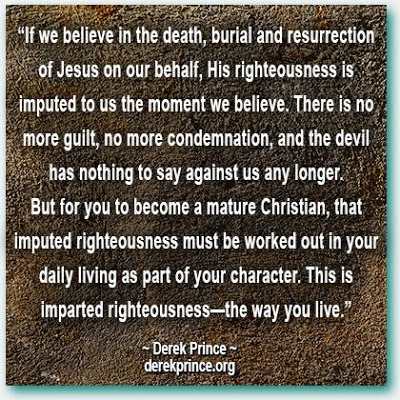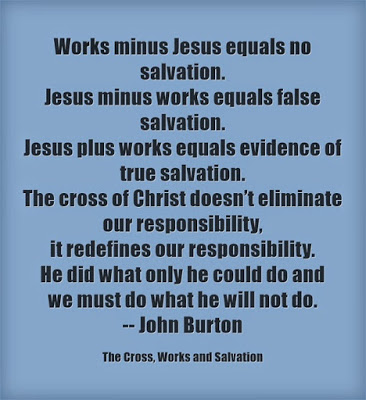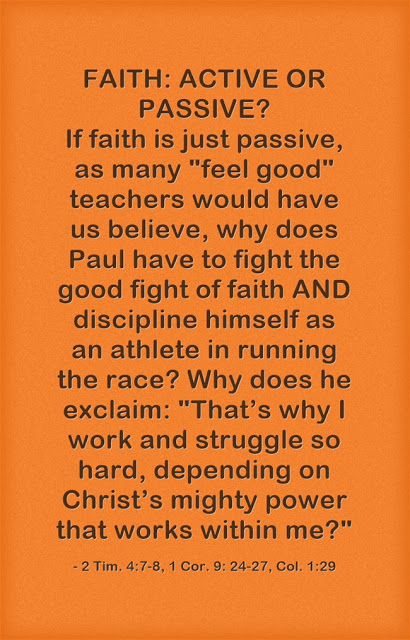
How the book of Ephesians sheds light on two important aspects in our walk of faith—our position in Christ and personal responsibility
An employee who wants to take up a well-paying job in a company must be ready for its challenges. If he wants to enjoy the benefits, he has to take personal responsibility for all the demands that come with that position. Indeed, any position of honour comes with responsibility.
An analogy exists in the spiritual realm. The book of Ephesians affirms our glorious position or standing as believers in Christ. But it also exhorts us to take personal responsibility in our journey of faith. As redeemed people, we have to live and walk in the light.
The book of Ephesians is highly instructive. No other book in the Bible lays outs so clearly for us the difference and relationship between these two important elements of the Christian life—position and personal responsibility.
In other words, the Christian life has two main elements: indicative and imperative.
Or to put it in another way, we have to embrace correct doctrine as well as live out what we believe through good deeds (1 Timothy 4:16). While belief in doctrine is passive, living out what we believe is active.

Though we are saved by grace through faith, we still need to fulfil what God has called into—a life marked by good works.
-
“For by grace you have been saved through faith. And this is not your own doing; it is the gift of God, not a result of works, so that no one may boast” (Ephesians 2:8-9).
-
“For we are his workmanship, created in Christ Jesus for good works, which God prepared beforehand, that we should walk in them” (Ephesians 2:10).
The first part of Ephesians (chapters 1-3) touches on our position or standing as believers in Christ:
We have been predestined to be God’s special people even before the foundation of the world.
We are forgiven by God on the basis of Christ’s shed blood at the cross.
We have been sealed with the Holy Spirit, which is a guarantee of our future spiritual inheritance.
Now spiritually alive, we get the privilege to sit in the heavenly places with Christ.
Believers who are Gentiles share the same privileges as the Jews, being united into one body, Christ being the cornerstone and the apostles and prophets acting as the foundation.
We should appreciate the immensity of God’s love for us and His immeasurable power at work within us, which is able to do far more than what we ask or think.
Isn’t the above an awesome account of what God, in His great wisdom and plan, has accomplished for us through Christ?
We should constantly affirm with joy our glorious position or standing in Christ. Considering the fact we were once sons of disobedience, dead in sin and living under satan’s grip, deserving nothing but God’s wrath, the benefits and privileges accorded to us as redeemed believers are truly mind-boggling. We can only fully grasp what we stand to gain in Christ one day when we join the heavenly choir in worshipping the Lamb (Revelation 4: 13).

In the second part of Ephesians (chapters 4-6), Paul stresses that, in view of our blessed position or standing in Christ, we need to respond by leading a life worthy of the high calling to which we have been called:
We must be eager to maintain the unity of the Spirit in the bond of peace.
Having varied and distinctive gifts, we should work together to build up the body of Christ till all attain unity and maturity.
We need to put off the old nature and put on the new nature—no longer be like the unregenerate who continue to live in sin as their minds are darkened and their hearts are hardened.
Let our anger be short-lived and let our words be positive and edifying. Bitterness and slander should be put away.
Thieves should stop stealing and engage themselves in honest jobs.
We should be kind and forgiving just as Christ forgave us.
We must not indulge in filthy talk or sexual immorality and avoid bad company as they might corrupt us.
We need to seek God’s will and make the best use of our time.
Instead of being drunk, we should have a grateful attitude and be filled with Holy Spirit, encouraging others through psalms and hymns.
Our new status should also impact our family life. Husbands should love their wives as Christ loved the church. Wives should submit to their husbands. Children should honour their parents. Fathers should not exasperate their children but bring them up in the fear of God.
The way slaves (or employees) and masters (or employers) should behave and relate to one another is spelled out. The former should respect their bosses and serve them as if they were serving Christ. Bosses should treat their workers well, cognizant of the fact that God is Master over all.
Finally, we need to put on the whole armour of God so that we can stand against the wiles of the devil.
Other references in scripture reinforce this teaching on position and personal responsibility found in Ephesians.
Though Paul states that believers no longer face condemnation as the law of the Spirit of life in Christ has set us free from the law of sin and death (Romans 8:1-2), we must not continue to walk in the flesh but according to the Spirit (Romans 8: 4). The reason Paul gives is simple: To set our minds on the flesh is death but to set our mind on the Spirit is life and peace (Romans 8: 6).
Peter declares that believers are God’s chosen people, royal priesthood, a holy nation called out of darkness into light; therefore, we have to live up to our high calling by being holy (1 Peter 2: 9-11, 1 Peter 1: 14-16).

In his book, “Sit, Walk, Stand”, Watchman Nee reveals an interesting way of summarising the book of Ephesians. To ‘sit’ is a passive act whereas to ‘walk’ and ‘stand’ connote active participation.
We are seated in the heavenly places with Christ (Ephesians 2:6). When we sit, we rest in an exalted position of blessing and glory. There is no effort involved.
“Most Christians make the mistake of trying to walk in order to be able to sit, but that is a reversal of the true order. Our natural reason says, ‘If we do not walk, how can we ever reach the goal? What can we attain without effort? How can we ever get anywhere if we do not move? But Christianity is a queer business! If at the outset we try to do anything, we get nothing; if we seek to attain something, we miss everything. For Christianity begins not with the big DO, but with the big DONE. Thus Ephesians opens with the statement that God has ‘blessed us with every spiritual blessing in the heavenly places in Christ’ (1:3) and we are invited at the very outset to sit down and enjoy what God has done for us; not to set out to try and attain it for ourselves” (Watchman Nee, “Sit, Walk Stand”, Pg 2).
When we walk, we live out what we believe in. Since we have been translated from the kingdom of darkness to the kingdom of light, we should live according to our high calling.
- We are exhorted to walk in a manner worthy of the calling to which we have been called (Ephesians 4:1).
- We are to walk in love, just as Christ also loved us and gave Himself up for us (Ephesians 5: 2).
- We have to be careful concerning how we walk, making the best use of the time because the days are evil. And we must not be foolish, but understand what the will of the Lord is (Ephesians 5:15-17).
Finally, we need to make a stand because we are soldiers of Christ engaged in spiritual warfare and, hence, the need to be vigilant always.
- “Finally, be strong in the Lord and in the strength of his might. Put on the whole armor of God, that you may be able to stand against the schemes of the devil” (Ephesians 6:10-11).
- “Armies march into other countries to occupy and subdue. God has not told us to do this. We are not to march but to stand. The word ‘stand’ implies that the ground disputed by the enemy is really God’s, and therefore ours. We need not struggle to gain a foothold on it.” (p.54)
- “Today we do not fight for victory; we fight from victory. When you fight to get the victory, then you have lost the battle at the outset.” (p.55)
- “Because victory is His, therefore it is ours.” (p.56)
- “If we believe the Lord, we shall not pray so much but rather we shall praise him more. The simpler and clearer our faith in him, the less we shall pray in such situations and the more we shall praise (p.57)
To conclude, the fact that our blessed position or standing in Christ comes with personal responsibility is clearly demonstrated in Ephesians and elsewhere in scripture.
For a believer, position and personal responsibility are inextricably intertwined. One cannot exist without the other.
Liberal theology emphasises what we get to enjoy based on our position in Christ but downplays personal responsibility. Indeed, the wind of doctrine now blowing across some churches is that accountability is a dirty word, good works border on legalism and ‘works righteousness’, there is nothing more believers need to do because it is ‘all by God’s grace’ and that once we are justified in Christ, we have already “arrived”, without any need for sanctification.
Though we may be made righteous in Christ, a process called justification, we also need to be progressively conformed to the image of Christ, a part of our Christian life termed sanctification. Confusion and muddled thinking result when we lump together two different processes: Justification, which is through faith and faith alone. And sanctification which is a life-long process whereby we die to self, submit ourselves to God, renew our minds and work out our faith with fear and trembling.

FAITH: ACTIVE, NOT PASSIVE
“It would not be difficult to point out at least twenty-five or thirty distinct passages in the Epistles where believers are plainly taught to use active personal exertion, and are addressed as responsible for doing energetically what Christ would have them do, and are not told to “yield themselves” up as passive agents and sit still, but to arise and work. A holy violence, a conflict, a warfare, a fight, a soldier’s life, a wrestling, are spoken of as characteristic of the true Christian.”
― Dr Michael L. Brown
RELATED POSTS
Knowing that God keeps us faithful till the end is not enough. We have to seek to understand His will for our lives and then live it out. In these end times when evil abounds, it is all the more important that we live intentionally and purposefully.
Which is a more accurate representation of a believer’s journey in life? Sit back and relax till we attain eternal bliss OR press on and persevere till the end?
Believers who earnestly desire to be God’s instruments must be prepared for satan’s reprisals.
Spiritual backlash when we attempt to serve God and extend His kingdom is a grim reality. But believers must be bold and persevere in spiritual warfare, not easily intimidated by satan’s devices.
Source of Article: http://limpohann.blogspot.my/2016/07/position-vs-personal-responsibility.html
NOTE: This article is a personal reflection of the writer, presented for the edification of our readers. Christianity Malaysia remains neutral and impartial on all inspirational reflections from all writers published on this website.
|Share The Good News|
Dr Lim Poh Ann




Leave a Reply